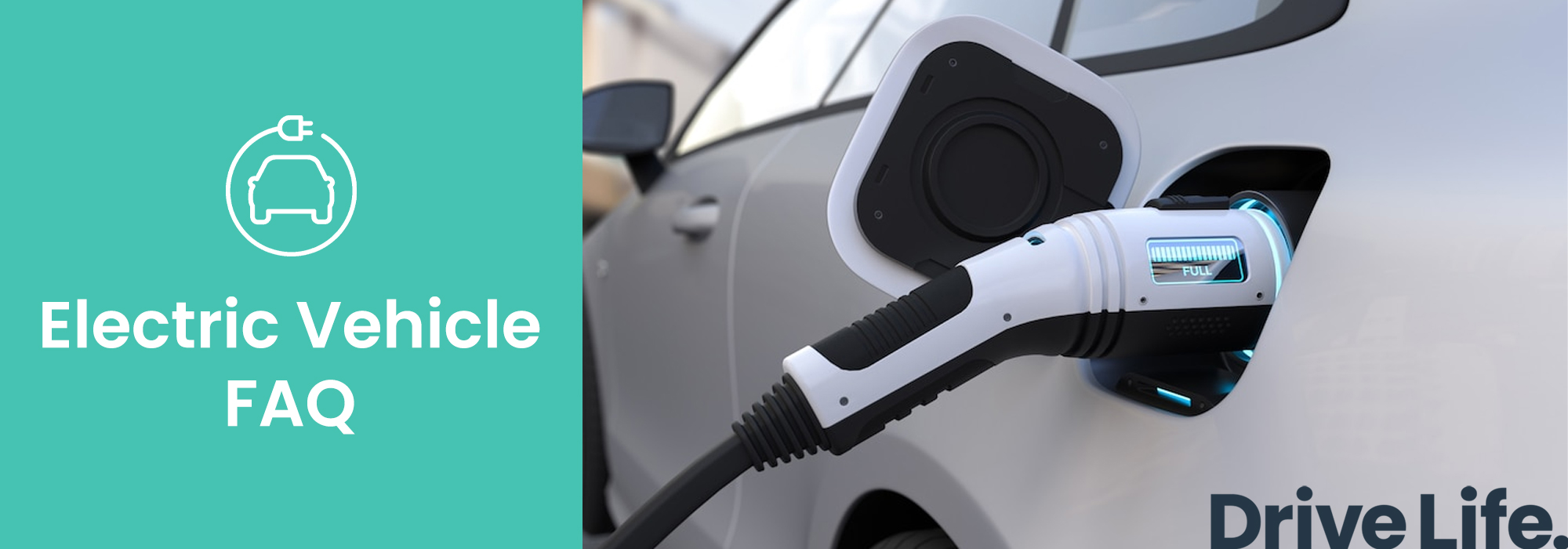Considering Electric?
You’ve got questions, we’ve got answers. Check out our Electric Vehicle FAQ page.
Considering Electric?
You’ve got questions, we’ve got answers. Check out our Electric Vehicle FAQ page.
The Answer to All Your EV Questions
Do electric cars require less maintenance?
Electric vehicles — which have fewer moving parts — need less maintenance, and generally cost less to repair than the average gas-powered vehicle. While many buyers are put off by the higher initial price of EVs, switching from a gasoline-powered car to an electric vehicle can be a great way to save money over the life of the vehicle.
Does an electric car have a lower cost of ownership?
With current electricity and gas prices, EVs cost approximately 1/4 the cost to drive when compared to a gas car. EV drivers can save $1,500-$2,000 per year on fuel alone. Many areas offer off-peak-pricing, so the cost of charging is low at night and on weekends - when most of your charging takes place.
Are electric cars more expensive to buy?
Most Electric cars are more expensive to buy upfront when compared to a comparable gas card. However, some vehicles qualify for provincial rebates to help bring this cost down. EVs are cheaper to operate and maintain than gas cars, so although your upfront cost might be higher, your overall cost of ownership is lower.
Will electric car batteries need to be replaced?
EV Batteries are designed to last the lifespan of the car, and it is improbable that you will need to replace them. However, some EV batteries will experience degradation over time, which can affect your driving range. Most electric vehicle manufactures offer comprehensive warranties for their batteries.
Do electric cars reduce greenhouse gas emissions and air pollution?
Electric vehicles have no tailpipe emissions. Generating the electricity used to charge EVs, however, may create carbon pollution. The amount varies widely based on how local power is generated, e.g., using coal or natural gas, which emit carbon pollution, versus renewable resources like wind or solar, which do not. Even accounting for these electricity emissions, research shows that an EVs are responsible for lower levels of greenhouse gases (GHGs) than an average new gasoline car. To the extent that more renewable energy sources like wind and solar are used to generate electricity, the total GHGs associated with EVs could be even lower.
Are electric car batteries environmentally friendly?
EV batteries are made from Lithium-ion, which is the same battery used in smartphones, laptops, and most rechargeable household electronics. Lithium-ion batteries are over 90% recyclable, and significant efforts have been made to increase this number even further, and to find secondary uses for batteries that can no longer power a vehicle.
Do electric cars have a lower life-cycle footprint?
When you compare the total life cycle of an EV to a gas car, from manufacturing to operation to end of life, EVs produce less than half the greenhouse gas emissions as a comparable gas car. Visit the Union of Concerned Scientists for more information.
Are electric cars easy to charge?
Most EVs come standard with a cord set that lets you charge using a regular wall socket, however, charging with a standard wall socket is quite slow. Many EV drivers will install a charging station that will easily charge an EV battery from empty to full overnight. At home charging stations are reasonably priced, in fact, at home charging is typically as simple as installing a higher amperage outlet (i.e. a dryer outlet) where you park your car. Plug in your car overnight and wake up to a full charge!
Do electric cars charge quickly?
While it is true that EVs can take upwards of 12 hours to fully charge, most drivers will only use ¼ of the battery in a typical day of driving and can easily charge back to full overnight. In addition, fast charging stations are being installed all over the province, including along the major highways. These stations will charge your EV from empty to 80% in ~30-45 minutes. Check out PlugShare online, or on their mobile app, to see a full map of charging stations across North America.
Are electric cars supported by a robust network of public charging stations?
Most of your charging takes place at home over night when the cost of electricity is lowest. If you need to charge while on the road, Canada has over 5,000 public charging stations, many of which are DC-Fast chargers that will fully recharge your battery from empty to full in ~30-45 minutes. To find a public charging station along your route, visit PlugShare. Public fast chargers make EV ownership feasible for those who cannot charge at home.
Can electric cars drive long distances?
The majority of EVs travel 200-500 km on a single charge. This is a lot more than it seems and there are several reasons why “range anxiety” should not be holding you back. If you need to take your fully electric car on a road-trip, there are numerous fast public charging stations called DC-Fast chargers that appear along highways and major roadways and will fully charge your battery from empty to full in ~30-45 minutes.
Are electric cars great for commuting?
Most Canadians drive 50 km or less per day. This is well within the range of every single electric car on the market. EVs handle traffic better, as electric batteries do not draw energy when stopped or idle. Most EVs also come equipped with amazing driver assistance technology, including adaptive cruise control and lane keep assistance.
